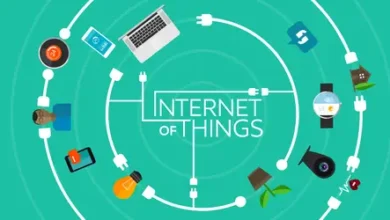Quantum Computing: Unlocking the Potential of Quantum Mechanics in Computing

Delve into the fascinating world of quantum mechanics, where traditional rules of physics cease to apply and a realm of seemingly impossible possibilities emerges. Our post titled “Quantum Computing: Unlocking the Potential of Quantum Mechanics in Computing” explores this cutting-edge technology that holds unprecedented potential for revolutionizing the computing industry. Imagine processing power millions, if not billions, times greater than our existing computers welcome to quantum computing! This technology flawlessly blends principles from both computer science and quantum physics to solve complex problems at lightning speed. Whether you’re well-versed with Schrodinger’s cat theory or new to superposition and entanglement concepts, we’ll help you understand how these weird yet wonderful phenomena are being harnessed in a bid to shape future technologies. Get ready for an exciting journey through qubits, algorithms & unexplored potentials that could very well determine tomorrow’s digital landscape!
Understanding the Basics of Quantum Computing
Quantum computing is a revolutionary field that leverages the principles of quantum mechanics to process information in ways that classical computers cannot. Understanding the basics of quantum computing is essential to appreciate its potential. At its core, quantum computing harnesses the power of quantum bits, or qubits, which can exist in multiple states simultaneously thanks to the principle of superposition. Additionally, qubits can be entangled, allowing for complex correlations between them. Quantum algorithms exploit these unique properties to solve problems at an incredible speed compared to classical computers. As researchers continue to push the boundaries of quantum computing, its transformative power in fields such as cryptography, drug discovery, and optimization becomes increasingly evident.
The Role of Qubits in Quantum Computing
Quantum computing represents a groundbreaking frontier in the realm of computing, utilizing the principles of quantum mechanics to revolutionize information processing. At the core of quantum computing lie qubits, the quantum equivalent of classical bits. Qubits have the unique property of existing in multiple states simultaneously due to superposition, allowing them to store and process significantly more information than classical bits. This ability to handle multiple computations in parallel enables quantum computers to perform complex calculations at astonishing speeds that are simply unattainable with classical computers.
Furthermore, qubits can also exhibit entanglement, a phenomenon where the state of one qubit becomes interconnected with another, regardless of the physical distance between them. This entanglement enables quantum computers to execute operations in a highly interconnected manner, enhancing their computational power exponentially. Leveraging these properties, qubits form the building blocks of quantum algorithms that can solve complex problems far more efficiently than classical algorithms. From cryptography to drug discovery, quantum computing holds immense potential to transform industries and scientific research by tackling problems that are currently beyond our reach. As researchers continue to advance the field of quantum computing, harnessing the unique capabilities of qubits will be key to unlocking the full potential of this innovative technology and ushering in a new era of computational power.
Advantages and Challenges of Using Quantum Mechanics
Quantum Mechanics holds immense promise for revolutionizing the way we solve complex problems that are currently beyond the capabilities of classical computers. One of the main advantages of quantum computers is their ability to perform calculations at an exponentially faster rate than traditional computers. This is due to the inherent properties of quantum mechanics, such as superposition and entanglement, which allow quantum bits (qubits) to exist in multiple states simultaneously. As a result, quantum computers have the potential to tackle complex mathematical problems, optimize large datasets, and simulate intricate physical systems with unprecedented speed and accuracy. However, the field of quantum computing also presents several significant challenges.
One major obstacle is the delicate nature of qubits, which are highly susceptible to errors from external disturbances, such as noise and temperature fluctuations. Maintaining the coherence of qubits over extended periods, known as quantum decoherence, is a critical issue that researchers are actively working to address through error correction techniques and fault-tolerant designs. Additionally, the design and fabrication of quantum hardware require highly specialized expertise and sophisticated technology, making it a costly and resource-intensive endeavour. Despite these challenges, the potential benefits of quantum computing are vast, with applications ranging from cryptography and cybersecurity to drug discovery and materials science. As research and development in this field continue to progress, quantum computers have the potential to transform industries, accelerate scientific discovery, and unlock new possibilities for innovation in the digital age.
Recent Developments and Breakthroughs in Quantum Computing
Recent developments and breakthroughs in quantum computing have sparked immense excitement in the tech world. Researchers have made significant strides in creating more stable and powerful quantum processors, leading to improved quantum computing capabilities. Quantum supremacy, the milestone where a quantum computer outperforms classical supercomputers, was achieved by Google’s Sycamore processor in 2019. Moreover, advances in quantum error correction and fault tolerance are paving the way for more reliable and scalable quantum systems. Companies like IBM, Microsoft, and Rigetti are actively investing in quantum computing research, aiming to harness the full potential of quantum mechanics in revolutionizing various industries such as cryptography, drug discovery, and optimization problems. The future of quantum computing appears promising, with ongoing efforts pushing the boundaries of what is possible in this groundbreaking field.
Potential Future Impacts and Applications of Quantum Mechanics
As quantum technology continues to advance, its potential future impacts are vast and transformative. Quantum computing, with its ability to perform complex calculations at unprecedented speeds, holds promise for revolutionizing industries such as drug discovery, finance, and artificial intelligence. Quantum communication offers the potential for ultra-secure data transmission, safeguarding sensitive information from cyber threats. Additionally, quantum sensing and imaging have the potential to significantly enhance medical diagnostics and environmental monitoring. The development of quantum technologies could lead to breakthroughs in fields ranging from healthcare to cybersecurity, paving the way for a new era of innovation and discovery.





